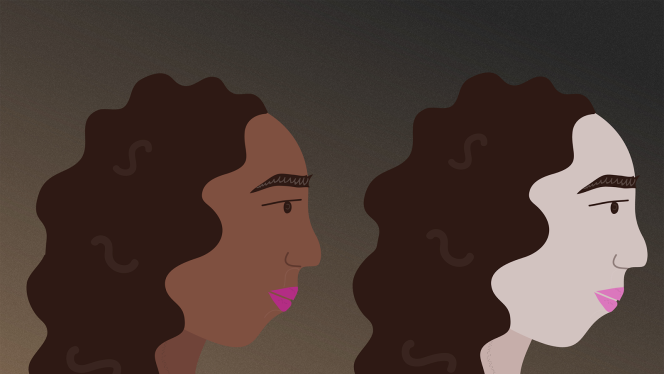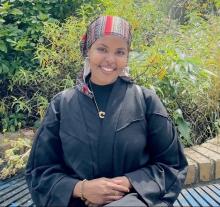Thursday 21 November 2024
Skin bleaching in Somalia

The widespread use of skin-bleaching products among Somalis is detrimental to both individual health and our collective understanding of beauty.
In Somalia, skin bleaching has become a major part of the cosmetics industry, driven by elite business groups who import hazardous and harmful products for consumers. Since the collapse of Somalia’s central government in the early 1990s, skin bleaching has risen as a widespread phenomenon. Gone are the days when Somali musicians urged listeners to “reject the colour of imperialism” and sang, “he who hates your blackness… don’t approve of his things.”
Women are put under increasing pressure to skin-bleach and conform to the community’s new beauty standard, reflecting the growing influence of colourism within Somali-speaking communities. The term was coined by African-American novelist Alice Walker, who in her essay, In Search of our Mothers’ Gardens, defined it as the “prejudicial or preferential treatment of same-race people based solely on their colour”. Walker argues that the problem must be tackled because “colorism, like colonialism, sexism, and racism, impedes us”.
Amira Adawe, a Somali American activist against the use of the creams, tied their widespread use to the legacy of colonialism in Somalia and Africa more broadly. “Certain skin colours were more accepted in society. But through the years, it became so embedded in the culture to where it's become normal. If you’re light-skinned, you're more accepted,” Adawe told NPR.
The phenomenon is widespread and manifests itself in a variety of ways where people with darker complexions are often bullied, discriminated against, denied opportunities, and mistreated. Somalis are no exception to this.
Somalis often use idioms and phrases that promote colourist ideas, discriminating against people with darker skin. Examples include “doqon iyo habeen baa madow,” which translates to “only fools and the night are dark’; and “cadaan qurux kama qatana,” meaning “light skin contributes to beauty standards”.
This development has created an opportunity for unscrupulous business people to exploit by providing skin-bleaching cosmetics and playing on those insecurities about appearance. Major global businesses from Johnson & Johnson to Unilever have at some point sold these products.
On a more local level, Somali skin-bleaching salespeople use social media to advertise their products. On TikTok, Fartuun Balbalaarka, who has 1.3 million followers, aggressively markets a variety of skin-bleaching products. In one popular video, a young woman laments, “everyone is light, and I am dark,” while sitting in front of a large pile of creams branded “diamond white”. She claims the cream will make her skin “double white” as she resists Fartuun’s attempt to take some of it.
As a result, skin bleaching has become rampant and dangerous, especially among Somali women and young girls.
Many countries around the world use skin-bleaching products in an attempt to achieve lighter skin. According to the World Health Organization (WHO), 40% of African women bleach their skin, and Somalia is among the African nations where citizens widely use these hazardous products. Reliable data on the use of skin-lightening products is scarce, but a recent survey conducted-on students in Somaliland found that 50% of respondents reported having used skin-lightening cream. More concerningly, 60% said they didn’t know what the active ingredient in the creams contained. The Global Environment Facility reports that in 2020, men and women worldwide bought $8 billion worth of creams that “promised to make their complexions paler”. Overall, the industry is expected to hit $31.2 billion globally by 2024.
Many consumers of skin-bleaching products are unaware of the lasting detrimental damage of skin-lightening products.
Doctors and anti-bleaching movements often highlight the harmful ingredients in these products, including mercury, steroids, hydroquinone, and other substances that can have long-lasting effects on the skin and overall health. Although many African states have banned skin-bleaching products, as well as the sale of illegal steroids and hydroquinone, these items continue to be sold online or on the black market.
In Somalia, where the central government struggles to ensure the general safety and security of its citizens, regulating the import of skin-bleaching products is not considered a priority. Consequently, these products are widely available, from large supermarkets and corner shops to rural villages across the country. People of all ages can easily access them without any restrictions or guidelines.
Moreover, suppliers of these products often present themselves as self-qualified chemists and pharmacists, mixing various harmful ingredients and prescribing them to consumers. This practice is highly dangerous, as it exposes many individuals to the risks associated with these products without them fully understanding the potential harm.
Despite the risks, skin bleaching remains a booming industry in Somalia, with numerous social media influencers, artists, and entrepreneurs actively promoting their products across various platforms. High unemployment rates
A significant number of skin-bleaching suppliers are uneducated women who are unaware of the long-term consequences of these products. Moreover, many of these women feel uncomfortable with predominantly dark and brown complexions.
As a Somali woman, it is essential to challenge the widespread acceptance of Eurocentric beauty standards. Additionally, human rights activists in Somalia should initiate campaigns to raise awareness about the harmful effects of skin-lightening creams. Social media influencers and local television stations should explore ways to ban the use of whitening creams while exposing the toxic substances associated with them. Moreover, society must move away from promoting lighter-skinned individuals as the standard of beauty.
Suppliers of skin-bleaching products in Somalia could also shift their focus towards organic skincare ingredients, thereby maintaining their businesses while contributing to efforts to ban harmful products. Furthermore, religious leaders, doctors, educators, politicians, social workers, and the wider community can unite to launch a grassroots movement to decolonise beauty standards across Somalia and the region.








